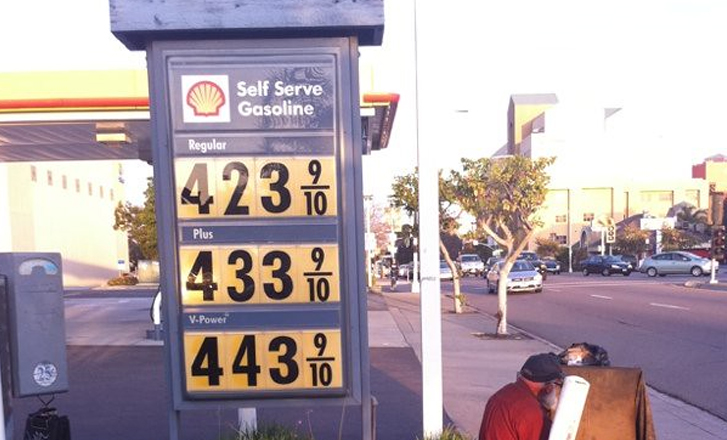Photo Credit: Eric Steuer / CC
Published May 21, 2021
The Center Square [By Casey Harper] –
Congressional Republicans grabbed headlines this week after releasing an aggressive budget they say would cut taxes and spending, but key measures in the plan also would address one of the country’s most serious economic problems.
The House’s Republican Study Committee released a budget that lays out several measures to deal with inflation, a growing concern among economists after the latest federal data showed a spike in consumer prices. Notably, the index for used cars and trucks rose 10%, the largest one-month increase since BLS began recording the data in 1953. Food and energy costs rose 0.9% in the month of April, prescription drugs rose 0.5%, and gasoline rose 1.4% during the same month. The energy cost index rose 25% in the previous 12 months.
Republicans on the committee say their plan would address concerns over inflation by balancing the budget within five years, thereby eliminating the need to monetize debt, a process where the federal government prints money to make payments on what it owes. The national debt has soared to more than $28 trillion and is expected to continue climbing under President Joe Biden’s new spending plans.
“However, when governments print large sums of new money to inject into the economy, as the socialists support, they do so at everyone’s expense,” a lengthy report summarizing the RSC budget says. “Haphazardly injecting a large amount of currency allows the government to consume as it pleases while destroying the vital information contained in prices and profits throughout the economy. This practice can also cause inflation, which effectively taxes existing dollars and contracts, transferring their value to the government’s newly printed currency.”
*** Click Here to Support Conservative Journalism in Tennessee. We can’t bring you News Stories such as this without your support!***
The Republican budget summary mentions inflation two dozen times, highlighting the latest line of attack for Republicans against the Biden administration.
These concerns come after the Bureau of Labor Statistics released data last week reporting the largest increase in consumer prices in more than a decade. Experts say that rise points to a spike in inflation.
“Over the last 12 months, the all items index increased 4.2 percent before seasonal adjustment,” BLS said in a statement. “This is the largest 12-month increase since a 4.9-percent increase for the period ending September 2008.”
The budget would also tie the capital gains tax rate to inflation.
“While assets are currently taxed partially on price changes caused by inflation, this proposal would properly align capital gains taxes by ensuring that they would only apply to the real growth in investments,” the committee said. “Adopting this policy would end the systemic undervaluing of American homes and other assets that a non-indexed capital gains tax imposes. Implementing this policy would expand investment in long term projects that benefit all Americans.”
This change would remove disincentives to investing, since investing in capital can often hurt businesses on tax day.
“But for capital investments, like building a factory or buying a machine, limits apply to how much can be immediately deducted in the year the spending happened,” said Erica York, an economist at the Tax Foundation. “When deductions are limited in that way, it overstates a business’s profits and results in higher tax liability. That remains true over time, even if the business eventually writes off the nominal value of the investment. Over time, inflation and the time value of money erode the real value of the deductions so that the real cost is never fully recovered. The result of limited deductions is a higher tax burden on investment, biasing decisions against investment by making it more expensive relative to other business activity that can be fully deducted.”
Inflation of the money supply can have a range of detrimental effects on the economy.
“Inflationary price changes hit different goods at different rates, which distorts all kinds of economic decisions,” said Ryan Young, an expert at the Competitive Enterprise Institute. “Companies aren’t sure whether to stock up on certain goods now before prices go up further – and buying less of other goods – or the other way around. This causes further distortions, and on it goes through the whole economy in ways nobody can predict. These distorted decisions are called malinvestment. Malinvestment is why inflationary booms always eventually go bust. A good investment in nominal terms might not be a good investment in real terms.”
Fear of malinvestment can cause investors to hesitate, or not invest in a particular area at all.
The inflation comes amid other economic worries such as high unemployment despite widespread job availability. The White House, though, has argued that the troubling figures are just a dip in an overall growing economy.
“When we took office four months ago, the economy was in crisis,” Biden said Wednesday. “We knew there was no time to waste, so we got right to work. Now, we’re creating an average of 500,000 jobs a month and building an economy that works for all – not just those at the top. That’s progress.”
About the Author:

Casey Harper, D.C. Bureau Reporter
Casey Harper is a Senior Reporter for the Washington, D.C. Bureau. He previously worked for The Daily Caller, The Hill, and Sinclair Broadcast Group. A graduate of Hillsdale College, Casey’s work has also appeared in Fox News, Fox Business, and USA Today.





